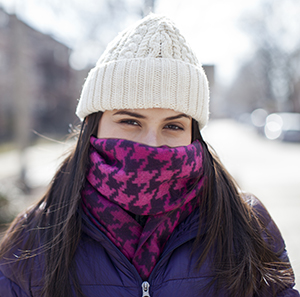Chronic Lung Disease: Avoiding Irritants and Allergens
Chronic Lung Disease: Avoiding Irritants and Allergens

Try to avoid…
Smoke. This includes cigarettes, cigars, pipes, and fireplaces.
Don’t smoke. And don’t allow anyone else to smoke near you or in your home.
Ask for smoke-free hotel rooms and rental cars.
Make sure fireplaces and wood stoves are well ventilated, and sit well away from them.
Smog. This is made up of car exhaust and other air pollutants.
Read or listen to local air quality reports. These let you know when air quality is poor.
Stay indoors as much as you can on smoggy days.
Strong odors. These include scented room fresheners, mothballs, and insect sprays. Perfume and cooking can be other causes of strong odors.
Avoid using bleach and ammonia for cleaning.
Use scent-free deodorant, lotion, and other products.
Other irritants. These include dust, aerosol sprays, and fine powders.
Wear a mask while doing tasks like dusting, sweeping, and yard work.
Cold weather. This can make breathing more difficult.
Protect your lungs by wearing a scarf over your nose and mouth.
You may also need to avoid…
If you have allergies, you should try to avoid the allergens that cause them. Ask your healthcare provider if you need to avoid any of these:
Pollen. This is a fine powder made by trees, grasses, and weeds.
Try to learn what types of pollen affect you the most. Pollen levels vary during the year.
Avoid outdoor activities when pollen levels are high. Use air conditioning instead of opening the windows in your home and car.
Animal dander. This is shed by animals with fur or feathers. The particles can float through the air and stick to carpet, clothing, and furniture.
Wash your hands and clothes after handling pets.
Dust mites. These are tiny bugs too small to see. They live in mattresses, bedding, carpets, curtains, and indoor dust.
Wash bedding in hot water (130°F/54.4°C) each week.
Cover mattresses and pillows with special mite-proof cases.
Mold. This grows in damp places, such as bathrooms, basements, and closets.
Run an exhaust fan while bathing. Or, leave a window open in the bathroom.
Use a dehumidifier in damp areas.
Updated:
March 21, 2017
Sources:
Qaseem, A. Diagnosis and Management of Stable COPD. A Clinical Practice Guidelines from ACP, ACCP, ATS, and ERS. Annals of Internal Medicine (2011); 155 (3); pp. 179-192
Reviewed By:
Berry, Judith, PhD, APRN,Blaivas, Allen J., DO,Image reviewed by StayWell art team.